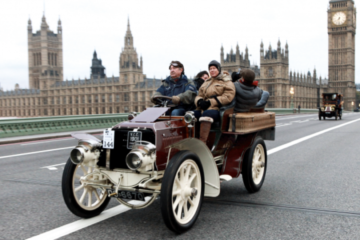As of 2019, the United Kingdom has been ranked as one of the worst Western European countries in the World Press Freedom Index, according to Reporters Without Borders.
Given the increasingly hostile approaches toward the press in the UK, such a rating is not surprising considering the trend of censoring or excluding select reporters and news organizations from covering particular briefs as a way of punishing them for critical reporting. Behind the development of this trend is a unique relationship between Prime Minister Boris Johnson and the press, as well as a growing anti-media sentiment.
This trend of excluding journalists has grown within the past few years and is a tactic that has been adopted by many governments and world leaders, most notably the American President Donald Trump. Johnson has also taken part in this, as exemplified by the infamous Downing Street briefing on 3 February 2020.
The incident began when journalists arrived at No 10 to join the briefing on the UK’s trade negotiations with the European Union, they were divided by Johnson’s senior communications adviser, Lee Cain. According to The Guardian, Cain then banned half of the reporters in waiting. In an act of solidarity, the approved journalists joined the banned reporters and walked out of the briefing altogether.
“I can safely say that in 22 years of being a political journalist, I’ve never experienced a day like today,” tweeted Paul Waugh, Executive Editor for HuffPost UK. “No.10 sources now insisting that political editors like myself ‘are not banned, they are just not invited.’”
Johnson’s relationship with the press has been unsteady before his tenure as prime minister given his track record as a Telegraph EU correspondent where he allegedly wrote sensationalized and erroneous stories. During his time as prime minister, Johnson has actively dismissed media organizations and has barred other ministers from appearing on tv programmes such as BBC Radio, ITV, and Channel 4.
Johnson has been accused by UK reporters of mimicking tactics from President Trump who routinely prohibits particular journalists from attending press briefings, specifically reporters who have been critical of his actions as president, according to Guardian reporters Rowena Mason and Andrew Sparrow. Trump has taken to discrediting national news organizations by referring to their coverage as “fake news,” as noted from his personal Twitter account.
“Congratulations to my Westminster Journalist colleagues for standing firm against Number 10’s Baby Trumpism. Quite right,” Adam Boulton, broadcaster and editor-at-large of Sky News tweeted following the Downing Street briefing walkout.
According to seasoned journalist and LSE Media and Communications professor Charlie Beckett, such patterns of excluding reporters and filtering access are not new to this government or previous ministries. However, he laments that there may be a larger agenda at play.
“What is possibly different this time, is that this could be construed as part of a wider pattern to exploit public anti-media sentiment and to push back on legitimate opportunities to hold government to account by providing open spaces for questioning,” Beckett explained in an interview via email.
Indeed, the Reuters Institute’s annual Digital News Report for 2019 cited that the trust in the news media among citizens in the UK “has fallen over 11 percentage points since 2015.” According to the report, “even the most trusted brands like the BBC are seen by many as pushing or suppressing agendas – especially over polarising issues like Brexit and climate change.”
Coverage of government actions, world relations, and global issues are critical and essential to the advancement of society, and the world as a whole. The world is dependent upon press freedoms to allow accurate coverage of the world especially considering press freedoms are not widely acknowledged across a large portion of the world such as is the case in countries like the Philippines, Venezuela, and Russia.
Critical reporting is a necessary skill for journalists covering world leaders and governments. Press freedom is facing an onslaught of attacks by disgruntled leaders and governments which results in delegitimizing the press.
In response to the precarious relationship between the UK government and the media, journalists are growing more critical in their reporting resulting in a more in-depth look at the actions of political leaders. Beckett explained that he hopes that these patterns of exclusion will result in better reporting from journalists which include more research and diverse sources.
“I don’t think Johnson is aiming for the same Trumpian strategy. UK politics is not as polarised and the system is far less presidential,” Beckett said. “UK newspapers are used to a partisan framing of government-media relations.”


